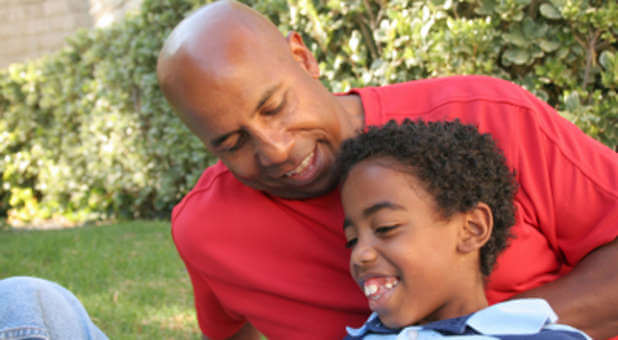Though children of all ages, both male and female, have an innate need for contact with their fathers, boys suffer most from the absence or noninvolvement of fathers. According to the National Center for Children in Poverty, boys without fathers are twice as likely to drop out of school, twice as likely to go to jail and nearly four times as likely to need treatment for emotional and behavioral problems as boys with fathers.
The staff at Emmaus Ministries can undoubtedly testify to the truth of these statistics. Almost without exception, the broken young men who visit Emmaus come from backgrounds riddled with abuse, neglect and the complete absence of a father figure.
As I review research on family disintegration, I am repeatedly confronted with the same disturbing issue. Boys are in trouble today primarily because their parents, and especially their dads, are distracted, overworked, harassed, exhausted, disinterested, chemically dependent, divorced, unable to cope or simply not there.
As indicated above, all other problems plaguing young males flow from (or are related to) these facts of life in the 21st century. Chief among our concerns is the absence of masculine role modeling and mentoring that dads should be providing. Mothers, who also tend to be living on the ragged edge, are left to do a job for which they have had little training or experience. Having never been boys, women often have only a vague notion of how to go about rearing one. Boys are the big losers when families splinter.
The National Center on Addiction and Substance Abuse at Columbia University found that children living in two-parent families who had only a fair or poor relationship with their fathers were at a 68 percent higher risk of smoking, drinking and drug usage than teens who had a good or excellent relationship with dads. By comparison, children growing up in a home headed by a single mother who had an excellent relationship with their mother had a 62 percent lower risk of abusing substances than children living in a two-parent family with a fair or poor relationship with their father. The influence of a good relationship with a parent, and particularly a father, can hardly be overemphasized.
Dr. William Pollock, Harvard psychologist and author of Real Boys, concludes that though divorce is difficult for children of both sexes, it is devastating for males. He says the basic problem is the lack of discipline and supervision in the father’s absence and his unavailability to teach what it means to be a man.
Pollock also believes fathers are crucial in helping boys to manage their emotions. Without the guidance and direction of a father, a boy’s frustration often leads to violence and other anti-social behavior.
Numerous other researchers agree that losing a dad (or never having one) is catastrophic for males. Thirty years ago it was believed that poverty and discrimination were primarily responsible for juvenile crime and other behavioral problems. Now we know that family disruption is the real culprit.
Prisons are populated primarily by men who were abandoned or rejected by their fathers. Motivational speaker and writer Zig Ziglar quotes his friend Bill Glass, a dedicated evangelist who counseled almost every weekend for 25 years with men who were incarcerated, as saying that among the thousands of prisoners he had met, not one of them genuinely loved his dad. Ninety-five percent of those on death row hated their fathers.
In 1998, there were 1,202,107 people in federal or state prisons. Of that number, 94 percent were males. Of the 3,452 prisoners awaiting execution, only 48 were women. That amounts to 98.6 percent males.
Clearly, as author Barbara Jackson said, “It is far easier to build strong children than to repair broken men.”














































